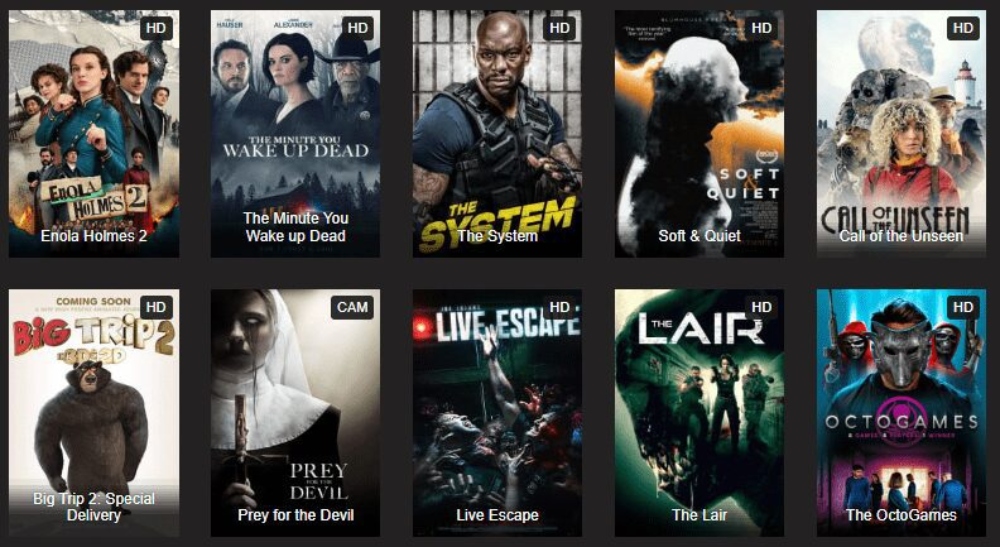Picture this: It’s a rainy evening, you’re cozied up on your couch with a blanket and a cup of tea, ready to dive into a new movie or TV show. You don’t want to pay for yet another streaming subscription, so you start browsing the web, looking for a site that offers what you want—free of charge. And then, like a beacon in the night, you find it: Megashare or Primewire. For a moment, it feels like you’ve discovered a hidden treasure trove of endless entertainment. But as with any treasure, there’s always a catch.
The Golden Age of Free Streaming
Back in the early 2010s, before streaming giants like Netflix and Hulu had solidified their dominance, the world of online streaming was a bit like the Wild West—unregulated, unpredictable, and full of opportunity. Megashare and Primewire were among the most popular platforms during this era, offering free access to a vast library of movies and TV shows. For many, especially those who couldn’t afford multiple streaming services, these sites were a lifeline.
I remember the first time I stumbled upon Megashare. I was a broke college student, drowning in assignments and desperate for a distraction. A friend mentioned it to me in passing, with a knowing look that said, “This is our little secret.” That night, I found myself engrossed in a film I’d been wanting to watch for months but couldn’t justify paying for. Megashare became my go-to, a secret haven where I could escape the pressures of college life without spending a dime.
The Allure of Megashare and Primewire
What made Megashare and Primewire so irresistible? It wasn’t just the fact that they were free; it was the convenience and the sheer variety of content they offered. These platforms were like the streaming equivalent of an all-you-can-eat buffet—everything was there, from the latest blockbusters to obscure indie films and international TV shows that were otherwise hard to find.
- Accessibility: No sign-ups, no subscriptions, no hassle. Just type in the name of the movie or show you wanted, and there it was, ready to stream.
- Variety: These sites were a haven for cinephiles and casual viewers alike. You could find everything from mainstream hits to niche genres, all in one place.
- Community Feel: Regular users would often share recommendations and links in forums and comment sections, creating a sense of community and shared experience.
But behind this appealing façade lay a darker reality, one that many users either ignored or were blissfully unaware of.
The Shadowy World of Piracy
While it might have felt like these platforms were offering a free and legitimate service, the truth was far from it. Megashare and Primewire were part of a sprawling network of piracy sites that operated on the fringes of legality. The content they hosted wasn’t acquired through official channels but was instead uploaded by anonymous users who obtained it through less-than-legal means.
This murky underworld of online streaming came with its own set of risks. Users were often bombarded with intrusive ads, some of which were linked to malware or phishing sites. And then there was the constant fear of the sites being taken down—many users would find their favorite streaming portal suddenly offline, forcing them to hunt for the next domain name these sites would pop up under.
The Legal Crackdown
As Megashare and Primewire grew in popularity, so too did the attention from copyright holders and legal authorities. The entertainment industry, understandably, wasn’t thrilled about these sites offering their content for free. Lawsuits were filed, domains were seized, and the cat-and-mouse game between piracy sites and law enforcement began.
In 2014, Megashare was shut down, much to the dismay of its loyal users. Primewire faced similar challenges, with the site being taken down multiple times only to reappear under different domains. It became a relentless battle, with the authorities trying to stamp out piracy while the operators of these sites found new ways to keep them running.
The Ethics of Free Streaming
The debate over the ethics of using sites like Megashare and Primewire is as complex as it is controversial. On one hand, there’s the argument that access to entertainment should be equitable and that the high cost of multiple streaming subscriptions creates a barrier for many people. On the other hand, piracy undermines the hard work of content creators, from the actors and directors to the crew members and writers, all of whom rely on legal sales and streaming revenue to make a living.
Imagine you’re an artist who spends months—if not years—creating a masterpiece, only to have someone take it and distribute it for free without your permission. That’s essentially what piracy does to the entertainment industry. It’s a double-edged sword: while it democratizes access to content, it also devalues the work of those who create it.
The Changing Landscape of Streaming
Fast forward to today, and the streaming landscape has changed dramatically. With so many legal options available—Netflix, Amazon Prime, Disney+, HBO Max, and more—the need for piracy sites like Megashare and Primewire has diminished. Competition among these streaming giants has driven down prices, and many now offer ad-supported tiers that make their services more affordable.
However, the legacy of Megashare and Primewire lingers. They were, in a way, a product of their time—born out of a demand for more accessible content in an era when the legal streaming market was still finding its footing. For many users, these sites were an introduction to the possibilities of online streaming, even if it came with legal and ethical baggage.
Conclusion: A Lesson in Digital Ethics
The rise and fall of Megashare and Primewire is a cautionary tale about the digital age and the complex interplay between accessibility, legality, and the value of creative work. These sites offered a tempting alternative to traditional streaming services, but they also operated in a legal gray area that ultimately led to their demise.
As consumers, it’s easy to get caught up in the allure of free content without considering the broader implications. But the story of these platforms reminds us that there’s often more at stake than meets the eye. The next time you’re tempted to visit a site offering free streaming, take a moment to consider the value of the content you’re consuming and the people who created it.
In the end, while Megashare and Primewire might be gone, the questions they raised about access, value, and the future of entertainment are more relevant than ever. As the digital landscape continues to evolve, so too must our understanding of the ethics and responsibilities that come with it. And perhaps, in reflecting on the past, we can make more informed choices about how we engage with content in the future.













